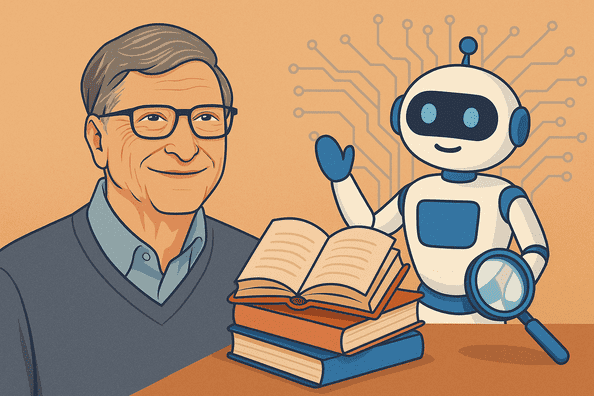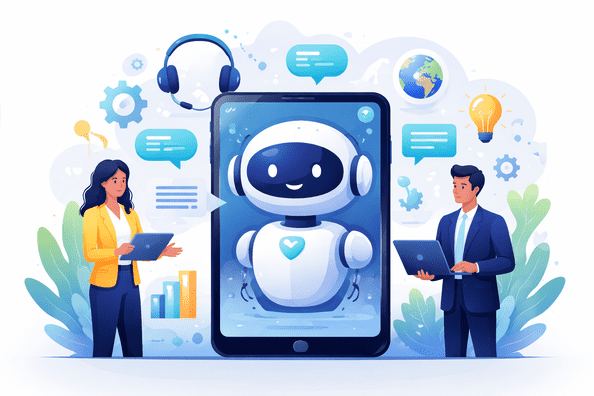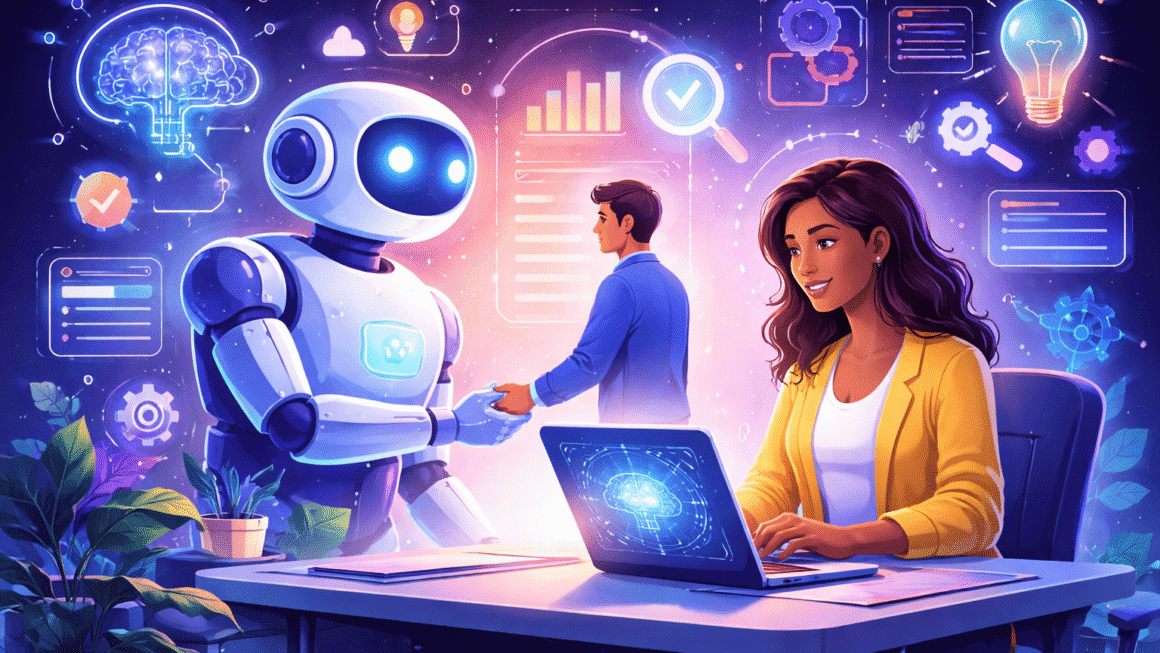In today’s fast-evolving technology landscape, few voices resonate as profoundly as that of Bill Gates. As the founder of Microsoft and a guiding figure in the world of innovation, Gates continues to share advice that’s uniquely grounded in both experience and vision. Recent years have seen him train his focus on artificial intelligence (AI), and his career advice for thriving in the AI era centers around three interconnected pillars: curiosity, reading, and mastering new tools. If you’re early in your career or looking to future-proof your skills in the age of AI, Gates’ perspective is deeply instructive.
The Foundation: Cultivating Relentless Curiosity
“It’s easier to learn things today. The stuff that’s online is just so miraculous,” Gates remarked in a recent interview, highlighting how accessible knowledge has become compared to when he started his journey.
From an early age, Gates’ natural curiosity set him apart. At just nine, he was known to pour over his family’s encyclopedias, reading article after article simply out of an insatiable desire to understand how the world worked. This trait didn’t fade; during his time at Harvard, Gates avoided limiting himself to just math and computer science, purposely enrolling in courses as disparate as criminal justice and British history to widen his worldview. He even credits psychology lectures with improving the social skills he’d later use to lead thousands at Microsoft.
The core lesson: deep, sustained curiosity isn’t a nice-to-have—it’s a prerequisite for success. Gates believes that in an era when AI can surface information in seconds, the most valuable professionals will be those who constantly seek out new knowledge and ideas, connecting dots that others overlook. Curiosity drives innovation, fuels problem-solving, and offers an edge that no algorithm can replicate.
Real-World Example: The Power of Diverse Learning
Consider the pathways of today’s most effective technologists: Google co-founder Larry Page’s fascination with printing presses influenced how he thought about data retrieval; Elon Musk’s voracious reading habits led him to launch companies in fields he studied independently. These examples mirror Gates’ own philosophy: the willingness to “go down the rabbit hole” often precedes lasting impact.
Reading: Gates’ Secret Weapon for Lifelong Learning
Bill Gates is famously known for reading 50 books a year—a habit he claims is central to both his success and personal growth. For Gates, each book is an opportunity to view the world through new lenses, challenge assumptions, and acquire knowledge that fuels further curiosity. “You don’t really start getting old until you stop learning. Every book teaches me something new or helps me see things differently,” Gates has said.
It’s not just technical manuals or business tomes. Gates reads fiction, history, and science, all in an effort to ensure his worldview doesn’t stagnate. His openness to diverse subjects has played a crucial role in shaping the work and philanthropy he continues today.
Practical Takeaway: Gates’ approach to reading isn’t about racking up numbers—it’s about depth and breadth. He reads “cover to cover,” intentionally venturing into sections that challenge him, rather than cherry-picking only what he finds immediately interesting. For anyone preparing for an AI-augmented future, this breadth can help foster interdisciplinary solutions and innovative thinking.
Real-World Example: Reading as a Professional Advantage
Imagine a software engineer who reads not just programming books, but also studies economics, environmental policy, and biographies. Such a cross-disciplinary habit broadens perspective, making the engineer more adept at spotting trends, collaborating across sectors, and innovating on larger scales—the very attributes Gates believes will “remain at the forefront” in human work.
Using Tools: Embracing AI Without Fear
While some worry about AI’s displacement of jobs, Bill Gates sees it differently. “AI can help with boring stuff like debugging,” he notes, but he is crystal clear that creativity and strategic thinking still demand a human touch. According to Gates, the future of programming, biology, and energy management will belong to those who see AI tools as enhancers—not replacements—of human ability.
Gates’ advice is simple: learn to use, adapt to, and experiment with AI tools. Whether it’s automating tasks, analyzing data, or brainstorming ideas, AI is quickly becoming a power multiplier. The professionals best-positioned for the coming decades will be the ones who wield these tools effectively, pairing human traits—judgment, empathy, imagination—with the computational muscle of AI.
Real-World Example: Leveraging AI in Everyday Work
A modern marketer, for instance, using AI-powered analytics can uncover insights at a speed unthinkable a decade ago. But it’s her creative intuition—her understanding of human psychology, cultural context, and out-of-the-box thinking—that turns data into compelling campaigns. Similarly, a doctor using AI to parse through medical literature still relies on empathy and experience when making a final diagnosis.
Gates himself walks the talk, collaborating with Microsoft and OpenAI to ensure these technologies reach areas such as health, education, and food production—amplifying positive impact rather than replacing human insight.
Bill Gates’ Balanced Perspective on AI and the Future of Work
Gates is no starry-eyed optimist. He acknowledges AI’s risks, including job displacement and the challenge of ensuring everyone benefits from new technology. But his overarching message is one of empowerment.
He predicts that, just as automation freed people from drudgery in the industrial age, AI will make room for more creative, strategic, and meaningful work. “We can retire early, have shorter work weeks,” Gates has suggested, but he also warns that society needs to rethink how we value and spend time.
His most recent public advice to young people? Stay curious, keep reading, and learn new tools. These habits will allow you not only to survive the coming disruption, but to thrive within it.
Balanced View: Opportunity and Adaptation
It’s important to recognize that the landscape will shift rapidly, sometimes in ways that challenge comfort zones. Gates’ emphasis on curiosity and tool mastery isn’t just a playbook for personal growth—it’s a survival guide. Those who resist change risk obsolescence; those who lean in and adapt become the architects of the future.
Personal Insights: Applying Gates’ Lessons Today
Reflecting on Bill Gates’ AI career advice from a personal—in fact, human—perspective, three truths stand out:
- Curiosity isn’t accidental: It’s intentional and must be actively nurtured. The more you feed it, the more it grows.
- Reading is a form of self-empowerment: It keeps you sharp and builds the mental agility needed in a fast-changing landscape.
- Mastering new tools is now table stakes: It isn’t enough to know your craft—you must continually learn what’s next, experiment, and develop fluency in new technologies.
Personally, I find that making time each week for non-work reading, and experimenting with at least one new tool or app monthly, keeps my mind agile and my work resilient—a lesson straight from Gates’ playbook.
Conclusion: Building a Career That Survives and Thrives in the AI Age
Bill Gates’ AI career advice—prioritizing curiosity, a hunger for reading, and agile mastery of modern tools—isn’t just relevant; it’s essential. AI is reshaping industries, but the most enduring value lies in human traits that machines can’t replicate. Those who foster relentless curiosity, lifelong learning, and tool fluency will not only weather the oncoming storm of automation, but will help design—and lead—the next era of innovation.
So, the next time you wonder how to future-proof your career or stand out in a world increasingly shaped by AI, remember Gates’ simple but powerful blueprint: be curious, keep reading, and use every tool at your disposal to turn possibility into reality.



